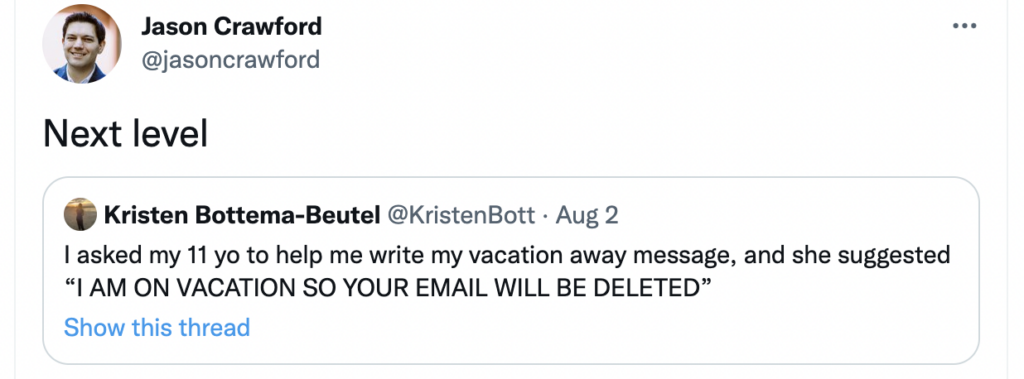Volcanoes are erupting in The Philippines, but on-fire Australia received some welcome rain. The Iran war cries have been called off and The Donald’s military powers are about to be hamstrung by the Senate. Meanwhile, his impeachment trial is starting, and we’re all on Twitter for a front-row seat.
What Could Go Right? Advice for positive political change
First step: are you registered to vote? Plus, peering into the protein universe, Kansas rejects potential abortion restrictions, and more
This is our weekly newsletter, What Could Go Right? Sign up here to receive it in your inbox every Thursday at 6am ET. You can read past issues here.
Peering into universes
Artificial intelligence, meet biology. A tool from Alphabet-owned AI lab DeepMind has finished predicting “the structure of nearly all proteins known to science,” as journalist Melissa Heikkila wrote for MIT Technology Review—nearly 200 million of them, for humans, plants, bacteria, animals, and more. “You can think of it as covering the entire protein universe,” Demis Hassabis, DeepMind’s founder, told reporters on a general call. DeepMind has released all the information for free, on a database anyone can access right here. Have a protein you want to look up? Just type it right in, and results appear like on a Google search.
Predicting protein structures is difficult, expensive, and time-consuming. It’s also important, as scientists can figure out how a protein works from its 3D structure. The database will save them a lot of time, explained Mohammed AlQuraishi, a systems biologist at Columbia University, to MIT Technology Review, meaning that work like developing new drugs and medicines, understanding diseases and how to cure them, and more will be greatly accelerated. An earlier version of the database has already played a role in a new malaria vaccine candidate and finding enzymes that could recycle plastics by “eating” them.
You might be thinking that until we see some results, the database doesn’t mean much to a layperson. Not so fast. While we can’t speak for the amateur protein-searching community, the amateur astronomy community is hustling when it comes to publicly available data. Citizen astronomers, combing through data from the National Aeronautics and Space Administration (NASA), just found a “first of its kind” tertiary star formation, notable for its massive size. A tertiary star formation is made up of two stars that orbit one another and a third, bigger one that orbits the pair.

In other neat science news this week, British scientists are advancing toward a universal vaccine that would work for all coronaviruses and the common cold, and American ones are, um . . . reviving dead spiders to make grippers. Cool or creepy? We leave that decision up to you, but arachnophobes, beware that link.
First stop, Kansas
How voters will react to the overturn of Roe v. Wade had its first test on Tuesday, when Kansas’ proposed amendment to the state constitution hit the ballot box. The amendment, which would have removed abortion rights protections, potentially opening a pathway for lawmakers to introduce restrictions or an outright ban, was rejected.
As was expected, the turnout was enormous. It was “especially impressive in Johnson County,” Kansas’ most populous county, “at 53.65%: a tally nearly unheard of in a primary election,” reported The Kansas City Star. “The number of votes cast in this election was more than double those cast in the 2018 primary, about 100,000 more than the number of votes cast in Johnson County for the 2020 presidential primary election and about 90,000 votes shy of the county’s total votes in the 2020 general election, when turnout was 74%,” the article continues.
As The Progress Network (TPN) Member Lauren Leader told us on the WCGR? podcast in June, “As much as people are tired and burned out and overwhelmed, all the polls that we look at show that these shock-to-the-system kind of events can be very galvanizing,” getting them to the polls when they might not have gone otherwise. We have noted previously that we write from a pro-choice perspective but understand that not all our readers share this view. Everyone, though, can rejoice at citizens making their voices heard in a democratic system.
Revisiting this podcast with Leader, as well as the situation in Kansas, reminded us of a reader question that came in recently: “What can we actually do to create positive, substantial, and meaningful change?” When you live in a democracy as vast and sometimes as unwieldy as the United States, registering to vote, encouraging your friends and family to register, and even getting involved in registering others is serious business. Then, educate yourself about the elections where you live, from the local to the national, and vote in them. This can make a huge difference. Understand that the country may not always move in the direction you want to go in, and that this is the curse but also the blessing of democracy. Put your full heart into participating in it.
Leader runs the nonprofit All In Together, which equips women with a civic education regardless of party affiliation. On the podcast, she had two other specific pieces of advice along these lines:
- Engage with your state governments. They are powerful, but many of them represent small numbers of people, which means “it’s actually incredibly easy,” Leader says, “to call up your state Representative or Senator” and talk to them about an issue in your community.
- Choose one issue. If you want to sustain your energy and focus for change-making over the long term, the best thing to do, says Leader, is to pick an issue that really matters to you, and work on that one. “You can chip away at problems,” she told us, “but not if you’re trying to chip away at all the problems.”
As for the pro-choice, pro-life debate, ending up with this outcome would be all right:
By the way, if you’re totally sick of Democrats and Republicans alike, TPN Member Andrew Yang has created a new political party called Forward, which he and other founders say will stake out centrist, optimistic positions on the issues. They’re planning to appear on ballots by 2024.
Before we go
We’re big fans of describing the green energy future as something that will improve our lives, not restrict them. So we loved reading this story in Wired that talks about the positive emotional impact of installing solar panels—what the writer calls “the bliss of energy abundance.” After the installation, “I quickly found myself awash in more energy than I could use,” he writes. He says he saves about $2,000 per year in electricity costs, which will pay for the panels in seven years. After that, “the electricity is damn-near free.” It certainly makes President Biden’s plan to bring solar panels to low-income homes sound pretty exciting.
We’re in a recession. We’re not in a recession. A recession is coming. A recession is not coming. Everyone is saying something different. But the real question is: does it matter? Here are two sober-minded reads on the state of the economy, one from TPN Member Ian Bremmer and one from economist Noah Smith, both of which include a surprising fact about who decides whether we’re in a recession, anyway.
But just in case you want to be ready, here is TPN Member Arthur Brooks’ best advice for staying happy in a recession: make a “prudent” plan for your saving, spending, and investments, and then stop checking your accounts, and turn off the news. Really. We give you permission.
Is cold brew your coffee of choice? You may be drinking one brewed by lasers one day.
Below in the links section, magic fungi, plant-based meat for cheap in the Netherlands, and a sepsis-detecting algorithm.
Secretly Sexy
A pop-section in which we celebrate numbers that represent substantial improvement in people’s lives
- 60% | The percentage of India’s 1.3 billion people with access to the internet, up from 19% only seven years ago
- 467M | The number of people worldwide who have gained access to electricity between 2010 and 2020 (p. 3 of this report)
- 8% | The percentage of uninsured Americans this year, an all-time low
- $1 | The agreed-upon price of a self-HIV test, now the cheapest on the market
Do you like Secretly Sexy? Let us know whether to keep it: hello@theprogressnetwork.org.
Why do we so consistently underestimate progress?

Three reasons why a radically better future is more likely than we think | Read more
Progress, Please
(Found good news? Tweet at us @progressntwrk or email.)
Other good stuff in the news 🌪
Environment:
- Cuba gets 144 new protected areas | Cuban News Agency
- Pakistanis plant trees to provide relief from scorching sun | Reuters
- Cheetah reintroduction in Malawi brings vultures back to the skies | Mongabay
- Why fungi might really be magic (when it comes to climate change) | The New York Times
- Surfers offer free wooden bellyboards to cut plastic pollution | Positive News
- First 100,000 kg removed from the Great Pacific Garbage Patch | The Ocean Cleanup
- What’s hotter than solar panels? Solar windows | Inside Climate News
- The unknown truth about the non-extreme extreme weather | Warp News
- Renewables accounted for 40% of UK electricity generation in 2021 | Current±
Science & Tech:
- Undersea Internet cables can detect earthquakes—and may soon warn of tsunamis | The New Yorker
- Model developed to predict landslides along wildfire burn scars | Northwestern Now
- DeepMind uncovers structure of 200m proteins in scientific leap forward | Pub
- Researchers revive abandoned technique in effort to make artificial human eggs in a test tube | Stat News
- An automatic robot can give us better maintenance of the railway | Warp News
- South Korea is set for its first Moon mission | Nature
- New AR glasses allow deaf people to ‘see’ conversations by turning audio into subtitles | Euronews
- Aptera electric car: First ride in a solar EV | CNET
- Genetic heart conditions could be cured for first time in ‘defining moment’ | The Guardian
Politics & Policy:
- Climate change bill would cut U.S. air pollution deaths by up to 3,900 per year, study finds | Yahoo!
- How Democrats plan to overhaul taxes, climate spending, and health care before the midterms | Vox
- Former Republicans and Democrats form new third US political party | Reuters
- White House rewrites rules to push more affordable housing with Covid-19 rescue funds | USA Today
- Ireland sets targets to halve greenhouse emissions | Reuters
- California wants to make cheap insulin. Here’s how it could work | Wired
- Biden administration plans for legal psychedelic therapies within two years | The Intercept
Covid & Public Health:
- Fourth patient seemingly cured of HIV | BBC
- This stamp-sized ultrasound patch can image internal organs | Wired
- Oxford’s cheap, single-dose rabies vaccine passes Phase 1 human trials | New Atlas
- Algorithm that detects sepsis cut deaths by nearly 20 percent | Scientific American
Economy:
- First ship carrying Ukrainian grain leaves the port of Odesa | AP
- Gas prices are still tanking—and are on track to fall below $4 per gallon by mid-August | Business Insider
- Majority of US workers changing jobs are seeing real wage gains | Pew Research Center
- Plant-based now cheaper than meat in the Netherlands: ‘Vegan burgers are on average 78 cents cheaper per kg’ | FoodNavigator.com
- Vast new study shows a key to reducing poverty: More friendships between rich and poor | The New York Times
TPN Member originals 🧠
(Who are our Members? Get to know them.)
- How Manchin struck a miracle of a deal with Schumer, Pelosi and Biden | Steve Clemons
- Has Joe Manchin saved the planet? | Ted Nordhaus
- Is US politics finally tilting in favor of the planet? |
Bina Venkataraman - Yes, social media really is undermining democracy | Jonathan Haidt
- Biden is showing that governing from the middle is possible | Fareed Zakaria
- Why Pelosi’s visit to Taiwan is utterly reckless | Thomas Friedman
- Want to fight crime? Hire a teen this summer | Jennifer Doleac
- Mapping the future: heat.gov | James Fallows
- Leopoldo Lopez on activism under autocratic regimes | Tyler Cowen 🎧
- Against ‘poor’ reporting | Alissa Quart
- Americans are avoiding the news. What can journalists do? | David Bornstein
- Overcoming American cynicism | Faisal Saeed Al Mutar
- What an overly pessimistic view of America gets wrong | Eboo Patel
- Why developing country voices will shape the global climate agenda | John W. McArthur
- Trans people shouldn’t have to hide to help Democrats win | Jennifer Finney Boylan
- Moral leadership starts with love | Dov Seidman 🎧
- The old human rights playbook won’t work anymore | Suzanne Nossel
- Why social distance can be good for democracy | Robert B. Talisse
Department of Ideas 💡
(A staff recommendation guaranteed to give your brain some food for thought.)
Older generations are reclaiming rites of passage | The New York Times
Rituals like graduations and weddings are few and far between for older adults. Some are finding ways to honor their momentous occasions.
Why we picked it: As we live longer and longer, it’s important to find new ways to celebrate ongoing achievements and tend to our inner lives, too. —Emma Varvaloucas
Until Next Time
We’ll miss you next week! Until August 18, this 11-year-old’s suggestion for a vacation away message is pretty solid. 👇



